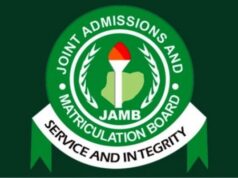The Federal Government has projected a Return on Investment (ROI) of about N1.67 trillion in 15 years on the Lagos-Calabar coastal highway.
The 700km Lagos-Calabar coastal highway project is designed to connect Lagos to Cross River State, passing through Ogun, Ondo, Delta, Bayelsa, Rivers, and Akwa Ibom states before culminating in Cross River.
The Minister of Works, David Umahi, gave the estimate while addressing newsmen and stakeholders during a meeting on the Lagos-Calabar coastal highway project in Lagos on Thursday, April 11, 2024.
Umahi gave the total estimates based on the classification of vehicles to be tolled when the project is completed.
The minister said: “I ran the figures this (Thursday) morning. That is if the 47.47km Phase I is completed and I toll on the two sections, I give an average of 50,000 vehicles, the big vehicles will be charged about N6,000, the small ones will pay between N1,000 and N1,500.
Atiku: N15.3trn Lagos-Calabar project, highway to fraud
“Let’s make it that an average of N3,000 would be charged, In fact, when I rounded the figures, I will have about N1.67 trillion in 15 years. So, the ROI will be huge.”
Umahi noted that the total cost of the coastal road project could not be fixed, saying if inflation hits, the project would be reviewed.
“Some people say we paid 1.067 trillion, the answer is no. We paid money according to the procurement act and according to the policy of the Federal Ministry of Works,” he said.
Umahi added that the project would boost economic activity, improve transportation, and create a more enjoyable travel experience, saying: “Along the corridor, tourism will be developed; there will be increased economic activity with estates and factories.
“Transportation network will improve, and train stations will increase activity and there will be faster water transportation.’’
The minister said the project, which aims to make road travel more attractive than air travel, would have amenities along the corridors such as solar lighting, toll stations, filling stations, hotels, and CCTV cameras for improved security and faster response times to incidents.
Umahi, who acknowledged that the coastal road’s importance was a national asset with the potential to attract foreign investments, noted that it required acquiring land which might be problematic for some property owners.
He said the government prefers a negotiated settlement with property owners instead of relying solely on legal processes.
He, however, appealed to property owners for their cooperation and avoid a confrontational approach.
- Church members gift Pastor Chris Okafor new SUV on birthday - May 2, 2024
- JAMB: We won’t release withheld UTME results - May 2, 2024
- Hoodlums clash in Lagos, set market ablaze - May 2, 2024










